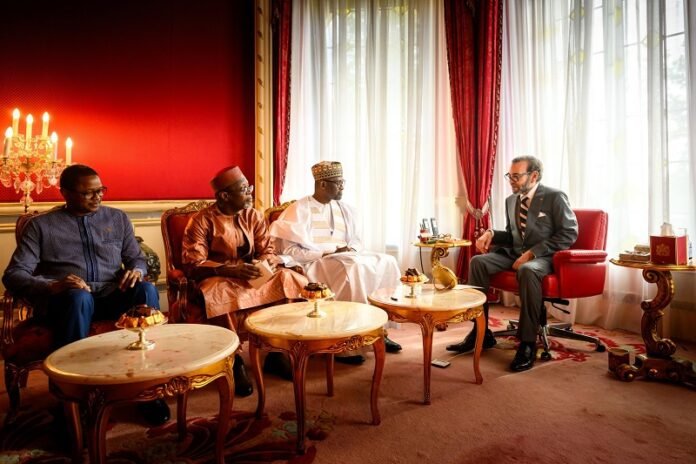In a geostrategic shift that is redrawing the map of influence in West Africa, Sahel countries — specifically Niger, Mali, and Burkina Faso — are betting on Morocco’s Atlantic Initiative as a practical alternative to their historical dependence on ECOWAS, aiming to broaden their political and economic independence after breaking with their traditional partners, most notably France and Algeria.
Business Insider magazine highlighted this accelerating dynamic, considering Morocco to be a “vital artery for the Sahel alliance” by providing a sustainable access point to the Atlantic Ocean through its advanced ports, especially the strategic Dakhla port, which is expected to reshape the region’s trade and logistics landscape.
The Atlantic as a Path to Liberation… and Rabat as an Economic Gateway
Through this initiative, Rabat enables Sahel countries to overcome geographical and political obstacles by lifting the isolation of their landlocked economies and offering stable, realistic alternatives instead of relying on ECOWAS member states like Côte d’Ivoire, Benin, or Senegal. The Moroccan initiative is not just a logistics project; it is a gateway to comprehensive transformation in partnership models focused on real development and balanced regional integration.
استقبل صاحب الجلالة الملك محمد السادس، نصره الله، يومه الاثنين بالقصر الملكي بالرباط، وزراء الشؤون الخارجية للبلدان الثلاثة الأعضاء في تحالف دول الساحل
🔗 https://t.co/4wCAzICSMi pic.twitter.com/Hxdulktlt2
— الدبلوماسية المغربية 🇲🇦 (@MarocDiplo_AR) April 28, 2025
Intersection of Interests… and Retreat of Traditional Powers
France is not the only loser in this shift. Algeria — which had long relied on its “revolutionary legitimacy” and historic ties with Sahelian elites — is now facing unprecedented isolation. Its relations with Mali have worsened after the Algerian army shot down a Malian reconnaissance drone, intensifying tensions between the two countries. Meanwhile, the Algerian government has failed to propose viable alternatives or meaningful cooperative projects.
The Atlantic Initiative… Benefits Beyond Economics
Foreign ministers of Niger, Mali, and Burkina Faso expressed full support for the initiative during their visit to Rabat, calling it a step toward diversifying partnerships and escaping hegemonic influence. This official discourse marks a new political orientation in the region — one that views Rabat as a reliable strategic partner who neither imposes agendas nor trades support for control.
After the Initiative: Is Rabat the New Center of Gravity in West Africa?
While Algeria retreats behind divisive rhetoric, Morocco quietly and realistically asserts itself as a developmental actor in Africa. The Atlantic Initiative may thus mark the beginning of a new era of South–South cooperation, where Rabat binds vision to utility, history to geography, and initiative to responsibility.


